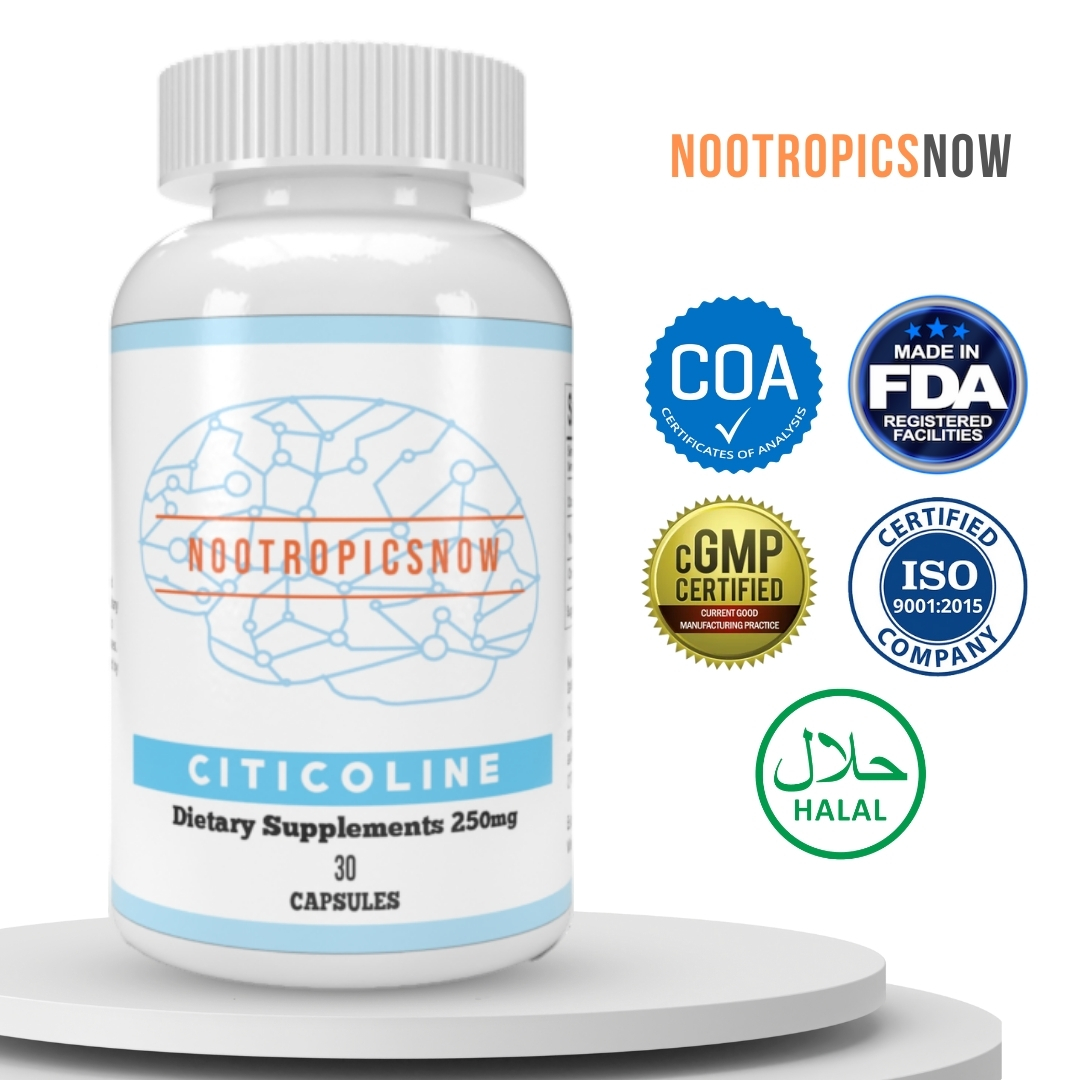Is Vyvamind FDA Approved?

Is Vyvamind FDA Approved? Unveiling the Regulatory Status

Navigating the world of cognitive enhancers requires careful consideration, particularly when evaluating the regulatory status of supplements like Vyvamind. Many prospective users understandably inquire, “Is Vyvamind FDA approved?” Consequently, it’s vital to understand the nuances of FDA regulation concerning dietary supplements and how it applies to Vyvamind. While the FDA does not “approve” dietary supplements in the same way it approves prescription medications, specific guidelines and regulations oversee the supplement industry.
Understanding FDA Approval vs. FDA Compliance
The Food and Drug Administration (FDA) has distinct processes for pharmaceuticals and dietary supplements. Specifically, new drugs must undergo rigorous testing and clinical trials to prove safety and efficacy before they can be approved and sold to the public. On the other hand, dietary supplements have a different regulatory pathway.
However, the FDA does have certain requirements for dietary supplements. Manufacturers must register their facilities with the FDA and comply with Current Good Manufacturing Practice (cGMP) regulations. These regulations ensure that dietary supplements are produced in a quality manner, without adulteration or misbranding.
Vyvamind and FDA Regulatory Status
Vyvamind, like many other nootropic supplements, falls under the category of dietary supplements. Therefore, it is essential to understand that Vyvamind is not FDA approved in the same sense that prescription drugs are. The FDA does not evaluate the safety and effectiveness of dietary supplements before they are marketed. Instead, the responsibility lies with the manufacturer to ensure that their products are safe and compliant with all applicable regulations.
That being said, information provided by manufacturer of Vyvamind states it is produced in FDA-compliant facilities. This means the manufacturing facilities adhere to Current Good Manufacturing Practices (cGMPs).
Current Good Manufacturing Practices (cGMPs)
cGMPs are a set of regulations enforced by the FDA to ensure that dietary supplements are consistently produced and controlled according to quality standards. These regulations cover various aspects of manufacturing, including:
Adherence to cGMPs helps to ensure that dietary supplements are safe, accurately labeled, and of high quality. While cGMP compliance does not equate to FDA approval, it demonstrates a commitment to quality and safety on the part of the manufacturer.
What Does FDA Compliance Mean for Vyvamind?
When a supplement like Vyvamind is manufactured in an FDA-compliant facility with cGMP approval, it indicates that the manufacturer has taken steps to ensure the product is produced in a controlled and quality-assured environment. This provides a level of assurance to consumers, although it does not carry the same weight as FDA approval. It suggests the manufacturing processes meet certain standards for quality and safety, reducing the risk of contamination or inaccuracies in the product’s formulation.
The FDA’s Role After a Supplement is Marketed
Despite not requiring pre-market approval for dietary supplements, the FDA still plays a crucial role in monitoring the market and taking action against products that are found to be unsafe or misbranded. The FDA can take enforcement actions, such as issuing warning letters, seizing products, or seeking injunctions, against manufacturers who violate the law.
The FDA also monitors adverse event reports related to dietary supplements. If the FDA receives reports of adverse events associated with a particular supplement, it may investigate the product and take action if necessary.
Evaluating Vyvamind’s Safety and Efficacy
Since Vyvamind is not FDA approved, it is important for consumers to conduct their own due diligence to evaluate its safety and efficacy. Consumers can take several steps to make informed decisions about whether to use Vyvamind or any other dietary supplement.
Potential Risks and Considerations
While Vyvamind may be manufactured in an FDA-compliant facility, it is essential to be aware of the potential risks and considerations associated with dietary supplements in general.
When considering supplements, especially those aimed at enhancing cognitive function, options such as Ginkgo Biloba are often explored for their potential benefits.

View Product
Transparency and Information from Vyvamind Manufacturers
A transparent manufacturer will readily provide information about their sourcing, manufacturing processes, and testing procedures. Look for companies that offer detailed information about their ingredients, including where they are sourced from and how they are tested for purity and potency. They should also be willing to answer questions about their manufacturing processes and provide documentation to support their claims. Moreover, any third-party testing or certifications they have obtained should be readily available.
Potential Benefits of Vyvamind Ingredients
Although Vyvamind itself hasn’t been through the FDA approval process for drugs, its individual components have been studied for potential cognitive benefits. Some of the commonly discussed ingredients in nootropic supplements like Vyvamind and their purported benefits include:
For those looking to supplement with L-Theanine, here’s a product to consider:

View Product
Individuals seeking to enhance their cognitive function may also find L-Tyrosine supplements helpful.

View Product
If you’re interested in citicoline for cognitive support, take a look at this option:

View Product
Conclusion
In conclusion, it’s crucial to reiterate that Vyvamind is not FDA approved in the same way as pharmaceuticals. However, it may be manufactured in FDA-compliant facilities that adhere to Current Good Manufacturing Practices (cGMPs). Therefore, consumers must conduct their own thorough research, consult with healthcare professionals, and remain aware of the potential risks and considerations when using dietary supplements like Vyvamind. While cGMP compliance offers some assurance of quality and safety, it does not replace the rigorous evaluation process required for FDA approval of pharmaceuticals. The responsibility ultimately lies with the consumer to make informed decisions about their health and well-being. Being aware of the FDA’s role, the significance of cGMP compliance, and the potential benefits and risks of the ingredients will empower you to make an informed choice about whether Vyvamind is suitable for your cognitive enhancement needs.
Is Vyvamind FDA Approved?
Understanding the regulatory landscape for nootropics is crucial for consumers. Therefore, this section specifically addresses the question of whether Vyvamind has secured FDA approval.
FDA Regulation of Dietary Supplements
The Food and Drug Administration (FDA) regulates both pharmaceutical drugs and dietary supplements differently. It’s important to understand these distinctions, as they impact how products like Vyvamind are assessed and brought to market. Unlike pharmaceuticals, dietary supplements do not undergo the same rigorous pre-market approval process. This means that the FDA does not evaluate the safety and efficacy of dietary supplements before they are sold to consumers.
Here are some alternatives to explore:
Instead, the manufacturer is responsible for ensuring the safety of its dietary supplements. They must also ensure that their products are accurately labeled. The FDA only steps in after a product is already on the market. Consequently, they might investigate if there are reports of adverse events or if the product is found to be adulterated or misbranded.
Vyvamind: Not FDA Approved as a Drug
Specifically, Vyvamind, being marketed as a dietary supplement or nootropic, has not received FDA approval as a drug. This is because nootropics generally fall into the dietary supplement category. As mentioned earlier, they, therefore, do not require pre-market approval from the FDA. Consequently, this lack of formal FDA approval does not automatically mean that Vyvamind is unsafe or ineffective. It simply reflects the regulatory framework governing dietary supplements.
Therefore, it is paramount for consumers to understand this distinction and to exercise due diligence before using any dietary supplement, including Vyvamind. Moreover, it is vital to consult a healthcare professional to determine if Vyvamind is suitable, especially if you have pre-existing health conditions or are taking other medications.
FDA-Compliant Manufacturing: cGMP Standards
While Vyvamind itself is not FDA-approved, it is often stated that it’s manufactured in FDA-compliant facilities that adhere to Current Good Manufacturing Practice (cGMP) regulations. This is a crucial aspect to consider. Compliance with cGMP signifies that the manufacturing processes meet specific standards for quality, purity, and consistency.
Here are some options to check out:
View Product-mood-anxiety-stress-mental-health-i.202321183.17830742615)
cGMP regulations cover all aspects of the manufacturing process. These include everything from the sourcing of raw materials to the final packaging and labeling of the product. By adhering to these standards, manufacturers aim to minimize the risk of contamination, errors, and variations in product quality.
The FDA regularly inspects facilities to ensure cGMP compliance. Failure to comply can result in warning letters, product recalls, or even legal action. Therefore, cGMP compliance is a significant indicator of a manufacturer’s commitment to quality and safety. However, it does not equate to FDA approval of the product itself. It means that the manufacturing environment and processes meet certain standards, thus reducing the risk of contamination and inconsistencies.
Understanding Claims and Disclaimers
Many dietary supplements, including Vyvamind, feature claims about their potential benefits. These claims may include improvements in focus, memory, energy, or overall cognitive function. However, it’s critical to approach such claims with a degree of skepticism. Due to the regulatory framework for dietary supplements, manufacturers are not required to substantiate these claims with rigorous scientific evidence.
Furthermore, these products typically carry a disclaimer stating that the product is not intended to diagnose, treat, cure, or prevent any disease. This disclaimer is mandated by the FDA and serves as a clear indication that the product’s claims have not been evaluated or approved by the FDA.
Consumers should carefully evaluate the evidence supporting these claims before using any dietary supplement. Look for independent research studies, peer-reviewed publications, or expert opinions. Also, consult with a healthcare professional to determine if the claimed benefits are realistic and appropriate for your individual needs.
Potential Risks and Side Effects
Like all supplements, Vyvamind carries potential risks and side effects. The specific risks and side effects will vary depending on the individual ingredients in Vyvamind and the individual user’s health status. Common side effects associated with nootropics can include headaches, nausea, anxiety, insomnia, and digestive issues.
Consider alternatives with fewer reported side effects:
Some ingredients may also interact with medications or have contraindications for certain health conditions. It is essential to research each ingredient in Vyvamind and be aware of its potential effects. This includes understanding the potential for allergic reactions, interactions with other substances, and long-term effects.
Moreover, consulting with a healthcare professional is crucial to assess your individual risk factors and determine if Vyvamind is safe for you to use. If you experience any adverse effects while taking Vyvamind, discontinue use immediately and seek medical attention.
The Role of Third-Party Testing
To enhance consumer confidence, some dietary supplement manufacturers voluntarily submit their products for third-party testing. Third-party testing involves sending samples of the product to an independent laboratory for analysis. The laboratory tests the product for purity, potency, and the presence of contaminants.
If the product meets the laboratory’s standards, it may receive a certification or seal of approval. This certification can provide consumers with an extra layer of assurance about the product’s quality and safety. However, it’s important to note that third-party testing is not a substitute for FDA approval. It is simply an additional measure that some manufacturers take to demonstrate their commitment to quality.
Consumers should look for products that have been tested by reputable third-party organizations, such as NSF International, USP, or ConsumerLab.com. These organizations have established rigorous testing protocols and are widely recognized for their expertise.
Evaluating Scientific Evidence
When considering whether to use Vyvamind or any other nootropic supplement, it’s essential to evaluate the scientific evidence supporting its ingredients. Look for studies that have been conducted on humans, are peer-reviewed, and have been published in reputable scientific journals.
Be wary of studies that are small, poorly designed, or funded by the manufacturer of the supplement. Also, be cautious about extrapolating results from animal studies to humans. Scientific evidence should be carefully evaluated and interpreted in the context of other available information.
If you are unsure about the validity of a study or the strength of the evidence, consult with a healthcare professional or a qualified expert in the field. They can help you assess the scientific information and make an informed decision about whether the supplement is appropriate for you.
Responsible Usage of Nootropics
Regardless of whether a nootropic supplement is FDA-approved or not, it’s important to use it responsibly. Start with a low dose and gradually increase it as needed, while carefully monitoring your response. Avoid exceeding the recommended dosage.
Take breaks from using nootropics to prevent tolerance and potential side effects. Get enough sleep, eat a healthy diet, and engage in regular exercise. Nootropics should not be used as a substitute for a healthy lifestyle.
Consider supplements that support overall well-being:
View Product-Nootropic-Brain-Booster-Motivation-Anxiety-Supplement-i.202321183.22514612143)
If you have any underlying health conditions or are taking other medications, consult with a healthcare professional before using nootropics. Be aware of potential drug interactions and contraindications. If you experience any adverse effects while taking nootropics, discontinue use immediately and seek medical attention.
The Future of Nootropic Regulation
The regulatory landscape for nootropics is constantly evolving. As the popularity of these supplements continues to grow, regulatory agencies may take a closer look at their safety and efficacy. There is a possibility that the FDA may implement stricter regulations for nootropics in the future, requiring more rigorous testing and pre-market approval.
Consumers should stay informed about the latest regulatory developments and be prepared to adapt their usage of nootropics accordingly. It is also important to advocate for responsible regulation that protects consumers while allowing access to safe and effective products.
In conclusion, while Vyvamind is not FDA-approved as a drug, it is manufactured in FDA-compliant facilities that adhere to cGMP standards. Consumers should understand the regulatory framework for dietary supplements and carefully evaluate the claims, risks, and scientific evidence associated with Vyvamind before using it. Responsible usage, consultation with healthcare professionals, and staying informed about regulatory developments are essential for making informed decisions about nootropic supplements.

